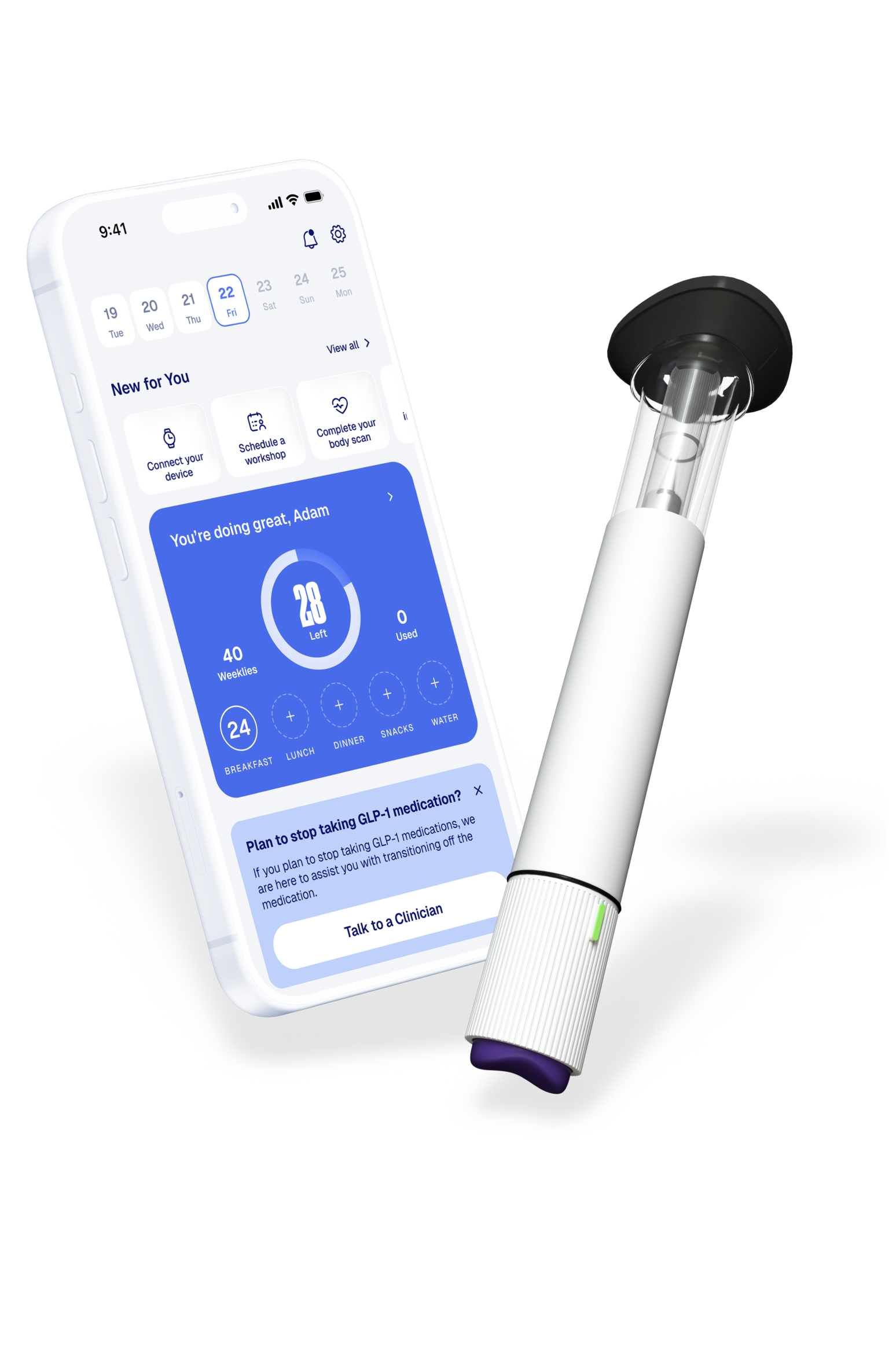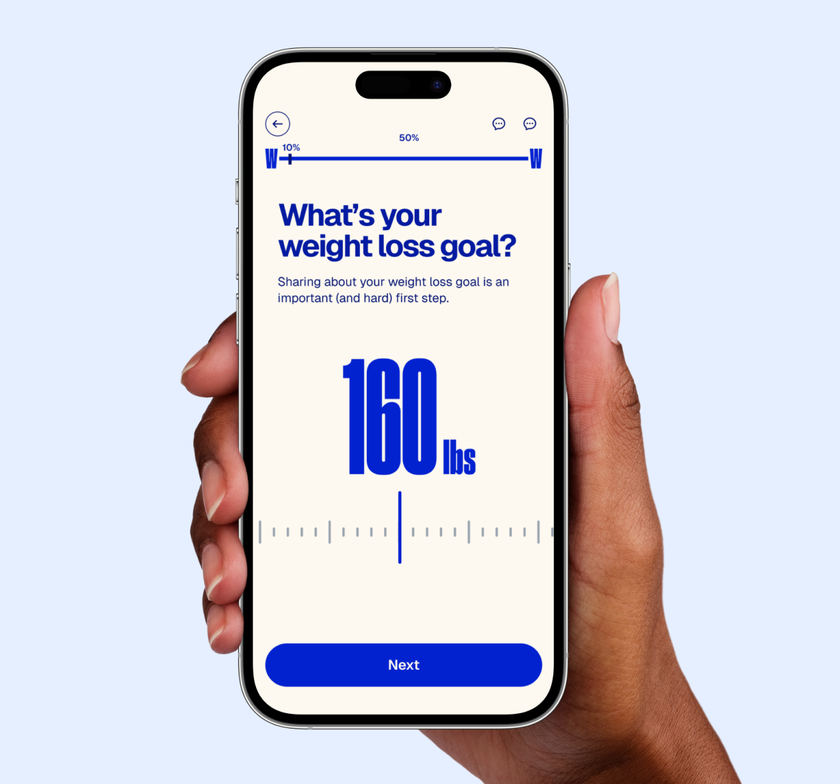
MED+
New! Wegovy® pill—at the lowest price available
All medical services are provided through our affiliated medical group, WeightWatchers Clinic. Medications require eligibility and prescription.

MED+
New! Wegovy® pill—at the lowest price available
Shayla
-33 LBS

All medical services are provided through our affiliated medical group, WeightWatchers Clinic. Medications require eligibility and prescription.
Get answers to your most important questions about FDA-approved
weight-loss medications.
Weight-loss meds
Oral meds reduce appetite and cravings; GLP-1s like Wegovy® or Zepbound® help control hunger and fullness.
How much weight can I expect to lose?
Our Clinic members lose 21% of their body weight in 12 months on average with a GLP-1 medication.*
What types of meds are available?
We only prescribe FDA-approved medications, available in both injection and injection-free options.
Will my insurance cover meds?
Your Care Team includes insurance experts who help maximize coverage for medications like GLP-1s. We also offer medication options included with your membership.
*In a study of 3,250 WW Clinic patients, patients that were prescribed a GLP-1 lost on average 21% of their body weight at 12 months.
Members lose up to 54% more weight
when combining weight-loss medication with the Points Program.^
^Based on a 12-week randomized controlled trial (n=101) that compared taking bupropion & naltrexone medications on their own to
taking bupropion & naltrexone with the Weight Watchers behavioural program, including the Points® Program. Jones et al. Manuscript
in draft. Funded by WW International, Inc.

What are GLP-1s?
GLP-1 agonists are naturally-occurring hormones that signal fullness to the brain.
GLP-1 prescription meds boost these hormones, fighting back against genetic, biological, and environmental factors that prevent weight loss.
This causes reduced appetite levels that result in more effective weight loss.
Are they safe?
GLP-1s are FDA-approved and clinically proven medications.
The most common side effects are nausea, constipation, or other gastrointestinal discomfort.
Your Care Team will advise you on the best ways to minimize side effects.
Medication shown not representative of actual product, which is dispensed by a licensed pharmacy.

Take a quick online quiz about your health history to see if you are a potential fit for the program.

Have a private Telehealth consultation with a board-certified Clinician who will determine if medication is a safe and appropriate choice for you.

If your Clinician decides medication is right for you, they'll write a prescription and your Care Team will work with your insurance to minimize out-of-pocket costs.

For many treatment plans, your approved medication can be discreetly delivered right to your door. Otherwise, we'll send a prescription to your pharmacy or choice.
Medication shown not representative of actual product, which is dispensed by a licensed pharmacy.

Continue meeting with your Care Team for regular check-ins while using the WeightWatchers app to build healthy habits.
How much do weight-loss medications cost?

Not interested in
injections?
There are other medication options for weight-loss.
Oral meds are included in a Med+ membership, starting at $25.*
Injection-free kits personalized for you
Lose up to 54% more weight by combining prescription weight-loss pills with Points®
1:1 check-ins with your Clinician
Medication shown not representative of actual product, which is dispensed by a licensed pharmacy.
94% reduction in progression
from pre diabetes
to type 2 diabetes with tirzepatide.**
**Based on a three-year clinical trial study (176-week treatment period) sponsored by Eli Lilly and Company, weekly injections of tirzepatide significantly reduced the risk of progression to type 2 diabetes by 94% in adults with prediabetes who were overweight or obese compared to placebo.

Ongoing support, every step of the way
Check in with your doctor regularly to ensure your plan is working for you.
Get personalized nutrition counselling and fitness plans.
Attend expert-led Workshops (in person or virtual) and connect with others on similar journeys.
Available 24/7 for questions, guidance, and tips in the WW app.
More weight loss
100% science backed
results are real

"There's constant honesty and constant support, which is something you really need on a weight-loss journey. From my Coach to other members on Connect, I have so many people cheering for me."

"Since starting Mounjaro® and the GLP-1 Success Program, I feel like I’ve gotten my life back."

"It's an investment in myself and I’m worth that investment."
The only weight-loss brand
backed by 60+ years of science
The leader then, the leader now: more science-backed ways than ever to help you lose
weight for better health. Our solutions fit you: your health, your life, your goals.